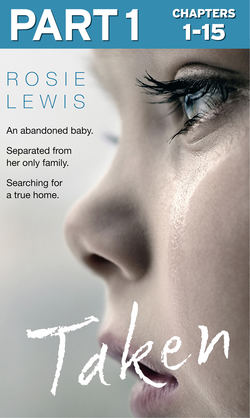Читать книгу Taken: Part 1 of 3 - Rosie Lewis - Страница 6
Chapter One
ОглавлениеMothers steered their buggies around the orange barricades, small wheels snagging on the rumpled pavement. The low hum of overheating motors filled the heavy air and behind me someone tooted their horn. Squinting against the plumes of dust, I watched a couple stepping out from the taxi in front of me, others ambling hand-in-hand towards the shops. On any other day I might have escaped the clattering of jackhammers and taken refuge down one of the sloping side streets, among the flower stalls and earthy cafés.
As it was though, I didn’t mind being stuck behind the wheel. Browsing the central courtyard for samples of cedarwood and patchouli oil while street entertainers played the crowds was one of our most favourite weekend pursuits, but not nearly tempting enough to compete with the experience that lay ahead.
It was a clear morning in mid-July 2011 and my Fiat was rolling slowly towards Queen Charlotte’s Hospital in the city centre where Megan, a baby girl, was being cared for by midwives. Born with a cleft palate three days earlier, Megan had been surrendered into the care of social services by her birth mother under a Section 20 voluntary order and, as a foster carer, I had been asked to begin daily visits to the special care baby unit with a view to bringing the newborn home as soon as she was well enough.
Peggy, Megan’s social worker, was also responsible for another child in my care – Zadie, a 13-year-old girl who had been staying with us since May. Quiet and helpful, Zadie had begun to relax in her new home and, though I still had a few concerns about her, I was fairly confident that taking on another foster child wouldn’t undermine the fragile trust growing between us. When Peggy told me about Megan though, there was a moment’s hesitation before I agreed to become her foster carer.
Having looked after little ones before, I knew how easily love could creep into your heart, stealthily taking you by surprise while your mind was distracted with other things. I also knew how painful it could be to say goodbye to children who had carved their own unique place in your family. Tess and Harry, young siblings who came to me as babies, had moved onto adoption after almost three years in our family. It had taken many months to adjust to the loss. After they left I told myself that I wasn’t suited to fostering tiny ones – it was so hard to let them go – but as the weeks passed the wonder of their early years came back to me.
Gradually the sadness faded, if not into insignificance, then insubstantial enough for me to appreciate what a privilege it had been to be a part of their lives. I knew that if I wanted to continue fostering I had to accept that helping children to move on to permanent placements was a crucial, and perhaps even the most pivotal, part of my role, and when I ran through the handover in my mind, I realised that even though I’d been jelly on the inside as I readied myself to let the siblings go, I had managed to keep my own feelings hidden from them. The handover had been painful, there was no doubt about that, but from the point of view of the little ones, it went very well.
Though I hadn’t seen them since the day they left, I had heard through the grapevine that they were doing very well, and slowly my confidence returned. Soon after Tess and Harry came Sarah, a baby born with severe neonatal withdrawal symptoms. Perhaps inevitably, the bonds grew quickly and though Sarah was only with us for a few weeks, parting with her wasn’t easy either.
I was honest enough with myself to suspect that moving another baby onto adoption might be painful, but Peggy had assured me that Megan’s case was unlikely to drag on – Megan’s birth mother, Christina Hardy, was a severely depressed young woman with a substance addiction who seemed unable to stick to any of the treatment programmes she had been referred to. Besides her dependence on illegal drugs, she had recently fled a violent partner and, with no home of her own, was staying in a refuge.
Although Christina wanted to keep Megan, she had agreed to her being fostered to avoid the trauma of a forced separation. Technically, Christina could revoke her agreement to the Section 20 at any time, but in light of her homeless state and drug-dependency issues, she was more than likely aware that social workers would have little trouble obtaining a more formal, interim care order through the courts.
From what Peggy had said, Christina’s chances of securing a full parenting assessment were minimal and the social worker was keen to push for a swift resolution of the case so that Megan could be settled quickly into permanence. Having known the social worker for several months, I felt I could trust her word. Initially she came across as a little brisk, but as I got to know her I realised that she was a professional who was happy to go the extra mile for a child in need. I knew that she would do her best for Megan.
As well as having an excellent social worker on the case, a recent review of the family justice system had found that the excessive delays in care proceedings were damaging for looked-after children. According to Peggy, the findings placed renewed pressure on local authorities to resolve cases within six months so that family finding could begin early on in the child’s life. I felt certain that I could handle a separation after a relatively short time.
